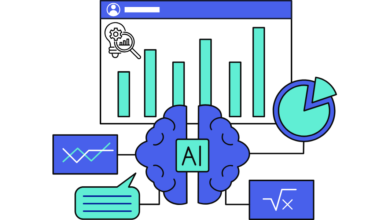
Your company may offer the best products and services in the world, but if you’re not making sound business decisions, it’s unlikely that your company is going to survive in today’s crowded and highly competitive market. Making smart decisions and devising business strategies that get results isn’t easy, however. In fact, your ability to make informed decisions is often a function of your use of data, and your ability to collect, organize, and effectively analyze the information you need to navigate the highs and lows of your operating environment.
The good news is that new technologies are emerging every day to optimize your data management processes, promote business intelligence, and ensure smarter business strategies. This article examines the role of tech innovation in driving business intelligence and facilitating the development of smarter business strategies.
What Is Business Intelligence?
Businesses don’t just survive and thrive by happenstance. There’s no such thing as luck in the business world today. Rather, businesses need decision-makers who have keen insight into the internal and external conditions under which the company operates.
Such insight derives from business intelligence, the processes through which relevant business data are collected and utilized to facilitate strategic planning, problem-solving, and risk mitigation. Business intelligence typically involves the integration of an array of technologies to support data acquisition, storage, and analysis.
IoT and Real-Time Data
When it comes to informed decision-making, few things are more important than timely data. You can, after all, have the most accurate and robust data in the world, but if the information is outdated, not only is it not going to be helpful but it may actually result in strategic errors.
Indeed, your data are only as good as their timeliness. This is why the advent of the Internet of Things (IoT) has proven to be a landmark in business innovation.
For example, IoT devices equip business leaders with a level of transparency in supply chain operations that was once unimaginable. This includes real-time tracking of shipments, enhanced inventory planning and management, and even continuous monitoring of warehousing and transport environments.
Such timely data enable decision-makers to identify inefficiencies in operating processes, as well as opportunities for performance improvements and business growth. The ultimate result is data-driven strategies for increasing productivity, efficiency, and profitability while providing partners, customers, and clients with a consistently exceptional business experience.
The Role of Data Management
Today’s technologies have made it easier than ever before to collect and access data from myriad sources. Big Data has made literally billions of data points available to business owners at the mere touch of a button. Decision-makers can access massive volumes of information on everything from consumer behavior to industry trends to competitor performance.
And while such data are critical to effective strategic planning, without a process for managing such enormous quantities of information, you’re going to end up with very little that’s of practical use. This is why data management tools are so important in transforming abstract metrics into actionable business strategies.
For instance, artificial intelligence (AI) technologies are increasingly being incorporated into data management systems to optimize the organization and analysis of massive data banks. AI systems, for example, use the power of machine learning to not only evaluate and interpret data but also to formulate evidence-based recommendations to support decision-makers in both long-term and short-range planning.
The Intersection of the Human and the Machine
While technologies such as AI systems may be used to automate some processes, including simple decision-making, perhaps the most significant innovations in business intelligence are those in which the human and the machine interact to develop smarter processes and strategies.
For example, analytical methods such as the strengths, weaknesses, opportunities, and threats (SWOT) model, have been used with great success for decades by business leaders seeking to make the most rational, data-driven decisions for their businesses.
With the advent of today’s data-focused technologies, however, decision-makers are able to construct more reliable, accurate, and comprehensive assessments of each of the four SWOT domains than ever before, thus supporting the effectiveness of strategy decisions derived from a SWOT analysis.
The Takeaway
Success in business doesn’t just happen. It is the hard-won result of time, effort, and planning. Fortunately, business leaders today have more tools at their disposal than ever before to support sound decision-making across all business functions. Indeed, tech innovations are greatly enhancing business intelligence and supporting smarter business strategies. Data management systems, for instance, enable decision-makers to rapidly access timely and relevant information to optimize short-term and long-range planning, problem-solving, and risk mitigation. Likewise, artificial intelligence technologies and machine learning give business leaders the unprecedented capacity to transform literally billions of data points into actionable plans. Similarly, IoT devices enable data collection in real-time, providing decision-makers with the most up-to-date information possible. This leads to unprecedented levels of transparency across business functions which, in turn, facilitates process improvements and timely, informed decision-making.




